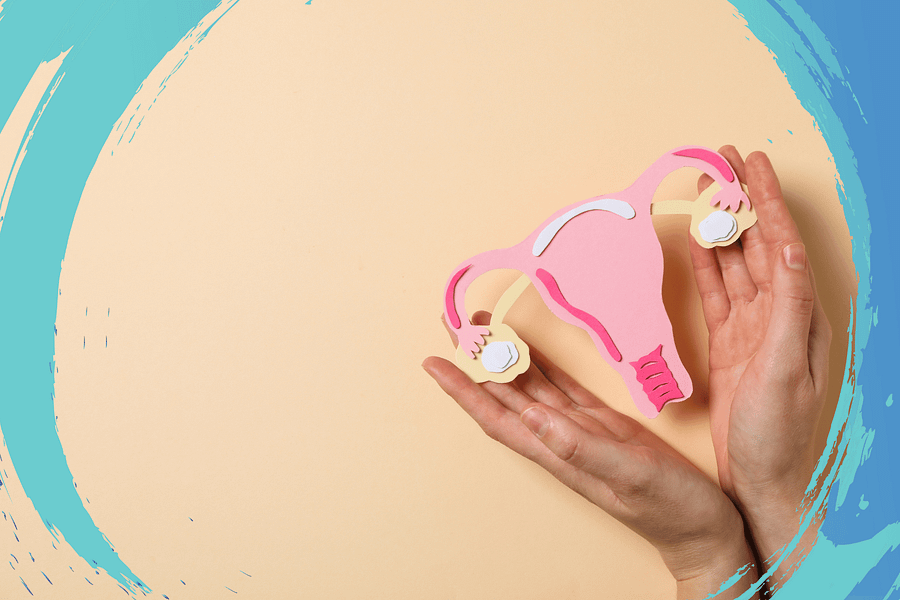Egg Quality Testing — What You Need to Know
Each assigned female at birth is born with a lifetime supply of eggs—a finite reserve that naturally changes in both quantity and quality over time. However, assessing egg health goes beyond simple numbers. Advances in modern testing now provide detailed insights into egg quality and reproductive potential.
These tests help doctors evaluate egg health and guide treatment plans—including those used in the egg freezing process. Egg quality directly affects how well egg freezing will work for you. In this article, we take a closer look at egg quality and testing available. If tests show signs of poor egg quality, there are also various ways you can improve it, which we explore below.
What is Egg Quality?
Egg quality refers to an egg’s genetic health and ability to create a viable pregnancy. High-quality eggs have 23 chromosomes. They also contain healthy mitochondria—the “powerhouses” of the cell that supply energy. These eggs are more likely to fertilize, implant, and lead to successful pregnancies.
However, age significantly impacts egg quality. Unlike other cells that constantly regenerate, eggs are finite and begin to decline in quality around age 35. At the same time, it’s important to note that this can vary from person to person. Environmental factors, lifestyle choices, and overall health all affect egg quality.
Yet, supporting the environment where the eggs develop in the ovaries can help optimize the quality of future eggs. But how do you know if you have good or poor egg quality? What tests can provide insights into this?
Signs of Poor Egg Quality
Signs of poor egg quality can be different for each person. Some of these signs may include:
- Irregular menstrual cycles
- Difficulty getting pregnant after six months of trying
- Multiple miscarriages
But this isn’t always the case and this data isn’t always available, which is why testing is important.
Blood tests can reveal hormonal imbalances that indicate decreased egg quality. High FSH levels, low AMH levels, or abnormal estradiol results often suggest declining egg health.
However, age remains the most significant indicator of egg quality. After the age of 35, eggs become more likely to have chromosomal abnormalities. This leads to lower fertility rates and increased chances of miscarriage.
Other signs of poor egg quality may include:
- Poor response to fertility medications
- Low antral follicle counts during ultrasounds
- Certain health conditions (like PCOS, endometriosis, or autoimmune disorders)
Signs of Good Egg Quality
Signs of good egg quality is essentially the opposite of the signs of bad egg quality. Fertility tests, including normal AMH and FSH levels, suggest a healthy ovarian reserve. Ultrasounds showing a good number of antral follicles also point to better egg quality.
If you have a regular, predictable menstrual cycle, it’s also more likely you’ll have a better egg quality. A cycle length between 26-32 days often indicates healthy ovulation and egg development.
Lastly, a younger age—35 years and younger—remains one of the strongest correlations of higher egg quality. As mentioned above, egg quality (and fertility) tends to decline significantly after this age.
Types of Egg Quality Testing
Unfortunately, no single test measures egg quality. Often, multiple tests are used to assess this. For instance, blood tests can measure key hormones that indicate egg health and ovarian function. The most important are anti-mullerian hormone (AMH), follicle-stimulating hormone (FSH), and estradiol levels.
Ultrasound imaging also offers insights into the antral follicle count (AFC). This shows how many potential eggs are developing. A higher AFC often suggests better egg quantity, though not necessarily quality.
FSH testing done on day three of your menstrual cycle can also provide some indicators of egg quality. This test measures how hard the body works to produce eggs—with lower FSH levels typically indicating better egg quality.
How to Improve Egg Quality
The good news is that egg quality can be improved through certain lifestyle choices and other factors, including:
- Eating a balanced diet rich in antioxidants and full of colourful fruits, vegetables, lean proteins, and healthy fats. (Key nutrients include folate, omega-3 fatty acids, vitamin D, and CoQ10.)
- Quitting smoking and limiting alcohol and caffeine intake.
- Maintaining a healthy weight and body composition.
- Reducing stress levels using relaxation techniques.
- Minimizing environmental toxins (such as using glass over plastic containers or opting for natural cleaning products).
- Learning proper management of specific health conditions (such as PCOS, endometriosis, and thyroid disorders).
Remember, the egg maturation process takes approximately 90 days, so committing to these changes for at least three months can significantly improve egg quality.
That said, age remains the most critical factor in egg quality. If you’re considering egg freezing, acting sooner rather than later can make a meaningful difference. At EVOLVE, we’re dedicated to supporting you every step of the way, helping you take charge of your reproductive future. Connect with an EVOLVE nurse today to learn more and start planning your fertility journey.
References



